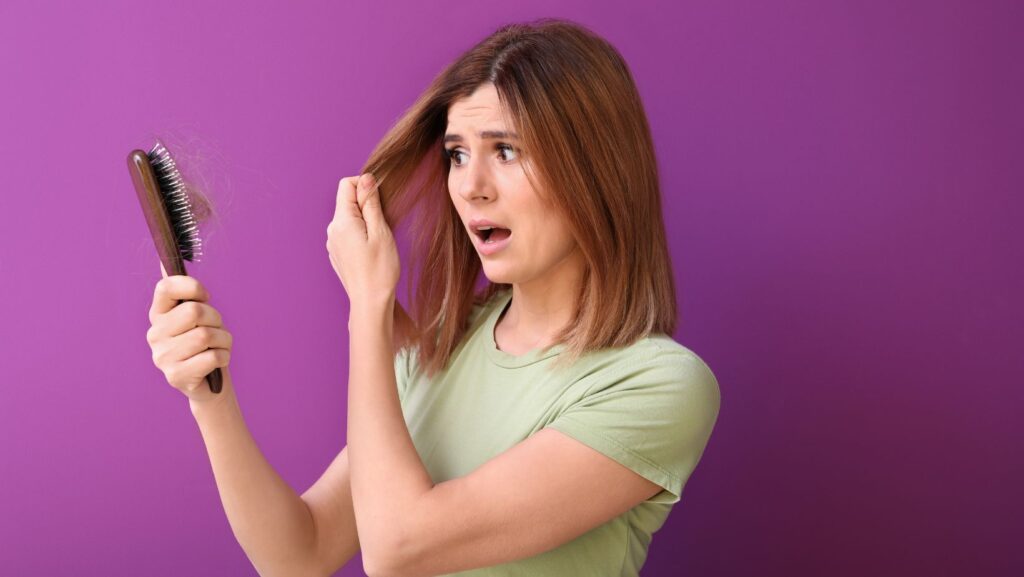Waking up to clumps of hair on your pillow or watching strands circle the drain can send anyone into panic mode. While genetics and aging play their part, stress is a silent saboteur that accelerates hair thinning more than most realize. The good news? You’re not powerless. By understanding how stress hijacks hair health and adopting targeted countermeasures, you can slow shedding and even encourage regrowth without drastic interventions.
The Biology Behind Stress-Induced Hair Loss
Cortisol, the body’s primary stress hormone, doesn’t just keep you wired—it disrupts the hair growth cycle. Elevated levels push follicles into premature dormancy (telogen effluvium), causing noticeable shedding weeks or months after a stressful event. Chronic tension also constricts blood vessels, starving roots of oxygen and nutrients. Inflammation triggered bybestprolonged anxiety further damages follicles, worsening thinning.
Mind Over Matter: Stress-Reduction Tactics That Work
Meditation isn’t just for yogis. Studies show that even 10 minutes daily lowers cortisol, creating a healthier environment for hair to thrive. Non-surgical hair loss treatments like laser therapy or PRP can complement these efforts, but mental resilience is foundational. Try guided breathing exercises—inhale for four counts, hold for seven, and exhale for eight. This simple pattern activates the parasympathetic nervous system, dialing down stress responses.
Move Your Body, Free Your Mind
Exercise is nature’s stress reliever. Aerobic activity—whether dancing, cycling, or brisk walking—floods the brain with endorphins, counteracting cortisol’s damage.

Strength training also helps by regulating insulin and reducing inflammation, both linked to healthier hair. The key? Consistency over intensity. A 20-minute daily routine outperforms sporadic marathon sessions.
Sleep: The Underrated Hair Growth Elixir
Skimping on rest sabotages more than energy levels. During deep sleep, the body repairs cells, including those in hair follicles. Poor sleep spikes cortisol and disrupts growth cycles. Prioritize seven to nine hours nightly. Create a wind-down ritual: dim lights, avoid screens an hour before bed, and try magnesium-rich foods like almonds or dark chocolate to relax muscles.
Nutritional Armor Against Stress and Hair Loss
What you eat directly influences how your body handles tension. Magnesium (found in spinach and pumpkin seeds) calms the nervous system. Omega-3s (from salmon or flaxseeds) reduce scalp inflammation. Vitamin C-rich foods like bell peppers boost collagen, strengthening strands. Avoid sugar crashes—they mimic stress responses, worsening hormonal imbalances.
The Hidden Culprit: Emotional Bottlenecks
Unprocessed emotions manifest physically. Journaling or therapy can release pent-up stress before it takes a toll on hair. Cognitive Behavioral Therapy (CBT) techniques help reframe negative thought patterns that perpetuate anxiety. Even laughing more—whether through comedy shows or socializing—lowers stress hormones.
Scalp Care: Ground Zero for Recovery
A tense mind often leads to a tense scalp. Massage with jojoba or argan oil increases circulation, delivering nutrients to dormant follicles. Use fingertips (not nails) in circular motions for five minutes daily.

Exfoliate weekly with a sugar scrub to remove dead skin and unclog pores stifling growth.
Digital Detox for Hair Health? Absolutely
Constant notifications keep the brain in fight-or-flight mode. Designate screen-free hours, especially before bed. Swap scrolling with tactile hobbies like knitting or gardening—activities that engage hands and mind without overstimulation.
When to Seek Professional Guidance
If shedding persists despite lifestyle shifts, consult a trichologist or dermatologist. Underlying conditions like thyroid dysfunction or autoimmune disorders may mimic stress-related hair loss. Blood tests can identify deficiencies (iron, vitamin D) needing correction.
Your Hair’s Resilience Mirrors Your Own
Stress doesn’t own the narrative. With deliberate, daily choices, you can rewrite the script—one where calmer minds and healthier habits lead to visibly thicker, stronger hair. Start small, stay patient, and let progress unfold naturally.
